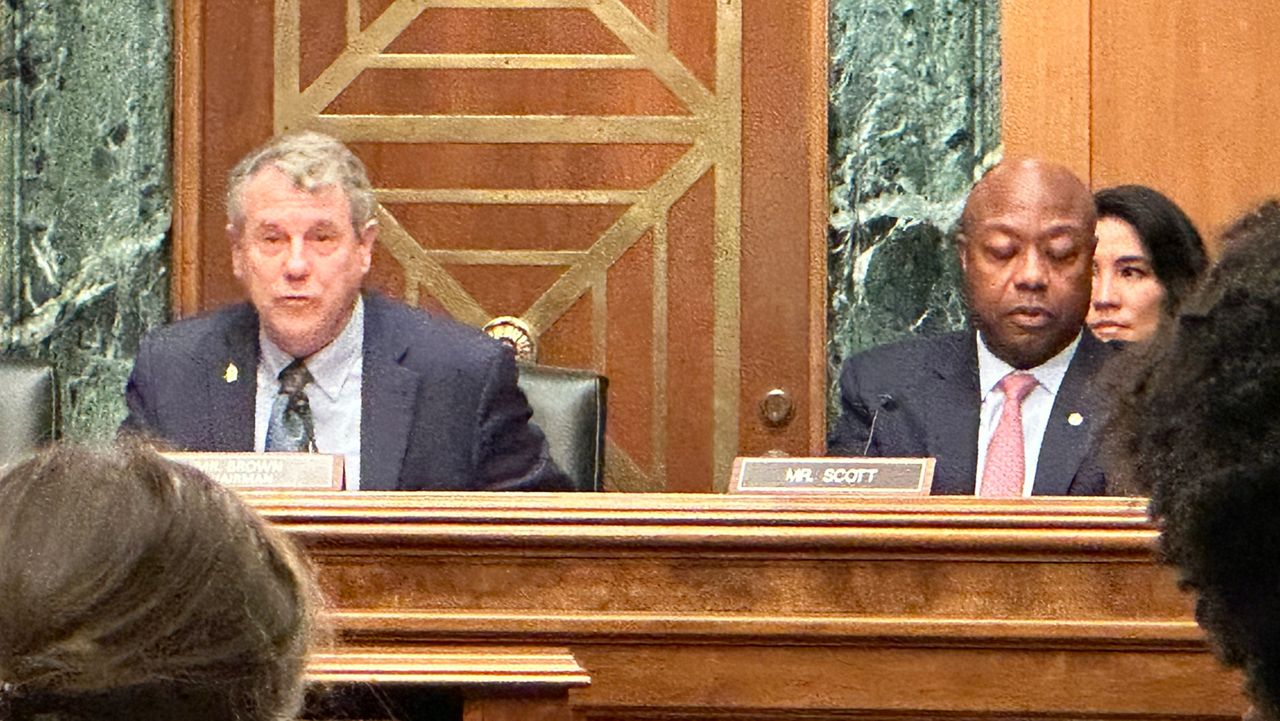WASHINGTON, D.C. — With the fate of new U.S. aid to Ukraine increasingly in doubt, representatives of Ohio’s large Ukrainian-American community and their elected officials said they were growing alarmed by the failure of Congress to act.
What You Need To Know
- Members of Congressional Ukraine Caucus met Wednesday to launch Ukrainian Week DC, a summit of U.S. and Ukrainian leaders
- The fate of billions of dollars in aid to Ukraine is increasingly in doubt amid Republican opposition
- Political analysts said elected officials who don't support the bill could lose support of large Ohio Ukrainian-American community
Ukrainian Week DC, a summit of U.S. and Ukrainian leaders, opened Jan. 31 with a plea from Rep. Marcy Kaptur, D-Ohio, founder of the Congressional Ukrainian Caucus:
“Now is the moment for our nation and this Congress to reaffirm our commitment to a foreign policy that promotes liberty—and liberty across our world.”
Democrats have spent months trying to negotiate border security reforms, hoping to win Republican support for tens of billions of dollars in new aid for Ukraine, Israel and Taiwan.
The $110 billion national security package appears to be unraveling, however. House GOP leadership has said the Senate-negotiated deal would be dead on arrival in the House due to opposition from party members and former President Donald Trump.
No matter how aid is passed, Ukraine advocates said it needs to happen soon.
“There’s grave concern over the lack of consensus on the resolution, including funding for Ukraine. Everybody knows what the stakes are for this country,” said George Jaskiw, vice president of United Ukrainian Organizations of Ohio.
In areas with a large Ukrainian population, like Northeast Ohio, voters are using their numbers to press elected officials toward approving more aid. Ohio is home to about 42,000 people of Ukrainian descent, with more than a third living in Northeast Ohio.
“They believe that this is not just an issue for them, this is an issue for U.S. security. They see it in much more global, geopolitical historic terms,” Jaskiw said. “So yes they’re concerned, they’re watching, and I would imagine that when elections come around, those concerns would come into play at the ballot box.”
Political analysts warned that not passing Ukraine aid could cost future votes for some Ohio lawmakers.
“Anybody representing Northeast Ohio needs to tread lightly when it comes to Ukraine aid. The Republican Party has been on the wrong side of this issue, with a lot of Republicans being very vocal, such as J.D. Vance being very vocal, in saying that the United States should no longer support Ukraine,” said Dave Cohen, professor of political science at the University of Akron.
Some Ohio lawmakers, however, appeared to remain unmoved. Sen. JD Vance, R-Ohio, said he doubted the national security package would pass.
“The proposal, I think, is about to die on the vine,” he said.
Vance, who has opposed additional funding for Ukraine, said he favors decoupling Ukraine aid from the stalled national security package. On Wednesday Vance and Rep. Kevin Herman, R-Okla., moved ahead to pass aid for Israel aid instead by proposing a clean, un-offset aid package for Israel. The proposal differs from a bill passed last year in the House that would provide $14.3 billion in aid to Israel but would offset the spending with funding cuts to the IRS.
“We’ve said for a long time that the Israel issue is separate from the Ukraine issue and the effort by some in Washington to combine this stuff together and deprive the American people of a debate is a huge mistake,” he said.
Senate Majority Leader Mitch McConnell, R-Ky., this week floated the idea of passing Ukraine funding separate from the border security package. However, unbundling the aid package could make it harder to pass the new Ukraine aid.
The European Union on Thursday agreed to extend 50 billion euros, or $54 billion, in new aid to Ukraine. German Chancellor Olaf Scholz said he hoped the EU decision would help spur Congress to follow suit.










